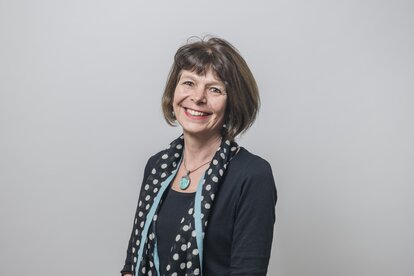The topic of Helvetas’ 2014 gender and social equity regional workshop in Asia was suggested and hosted by our team in Tajikistan. It was: Gender and Development in Islamic contexts. When this was first suggested, I must admit to a few qualms, mainly related to my limited knowledge of Islam. But it was, of course, a great learning opportunity. The aim of the workshop was to provide a forum for sharing field experiences – approaches that have worked, new ideas, and ways of responding to any challenges arising from religious arguments. We invited two local resource persons to help us understand the teachings of the Qu’ran, although most of the workshop participants, being nationals of Afghanistan, Bangladesh, Bosnia, Kyrgyzstan and Pakistan as well as Tajikistan, had considerable knowledge on the subject themselves. Indeed, some have deep personal faith, whilst respecting other viewpoints; religious tolerance is a requirement of our Code of Conduct, signed by all staff. The approaches presented were varied, and focused very much on practicalities.
So what did we learn? Certainly a lot about the day-to-day realities of each other’s work, but first, here are a few very basic points with regard to the Islamic context.
- The Qu’ran stresses mutual respect between men and women, and equal rights as human beings. This was hardly a revelation to participants, but is nevertheless important to state here given the way that “Islam” is so often invoked to have other meanings.
- The Qu’ran teaches a clear distinction in gender roles between men and women – emphasising women’s reproductive and caring role, and men’s responsibility to providem for their families, as it was customary during the time of the Prophet Mohammed. This does not mean to say that other roles are forbidden to women, as long as family duties are fulfilled. Thus the possibility, for example, for women to serve as leaders or to gainan income outside the home, is accepted.
- Radical interpretations of Islam tend to be strongly rooted in local customs and culture, and are often used primarily as a means of exerting political power – as is very evident in current world events.
Regarding the practicalities of our work, the wide variation in religious interpretations and their influence on daily life in the different countries represented was quickly apparent. Here are a few examples.
- In Afghanistan, where women’s movement is extremely restricted, all our female staff working in the districts are required to have a male chaperone, mahram (their husband, father, brother, or son if sufficiently old) at all times when travelling outside the office. Since it is impossible for our male staff to work with women in rural areas, we need women staff to be able to work with women. Thus we make provision for the mahram of each female staff member (she receives a monthly allowance to cover some of his costs), and for the mahram of women attending training or other courses supported by us. The current discussion is how to engage these mahram as pro-active proponents of our activities and not merely passive observers.
- In Pakistan, women’s income-generating activities – specifically, home-based weaving in the Swat valley – were limited by a lack of credit. Not only was it impossible for the women to obtain bank loans, but in any case they felt this would be wrong, given that the Qu’ran forbids interest payment. The project working with them thus supported a micro-credit institution to expand its activities to the valley and develop an appropriate offer of Islamic banking. That is, money is advanced against a share in the profits (or losses) of an enterprise. This has allowed women to significantly expand and improve their weaving activities, and income thus gained.
- In Bangladesh, one of our projects has developed a number of training modules on women’s leadership, supporting women who wish to become more active in local government to gain confidence, public speaking skills, and knowledge of pertinent legislation. As part of this overall process, local religious leaders are also approached to gain their support.
These are just a few glimpses into discussions. Participants all claimed the week to have been an enriching one; they now have the challenge of putting to use some of what they learned in their daily work.
As to the identity of the participants… All Helvetas programmes worldwide have at least one gender and social equity focal person; sometimes this position is shared, sometimes each project has a designated staff member with a certain allocation of time to gender and social equity matters. The idea is that these professionals not only promote the topic in their immediate work, but share experiences – contributing to wider learning on the topic within and outside our organisation. Our regional workshops on gender and social equity are usually attended by these focal persons, plus other staff members who have a particular interest in the topic. Depending on numbers, they may also be open to partner staff and/or others.


